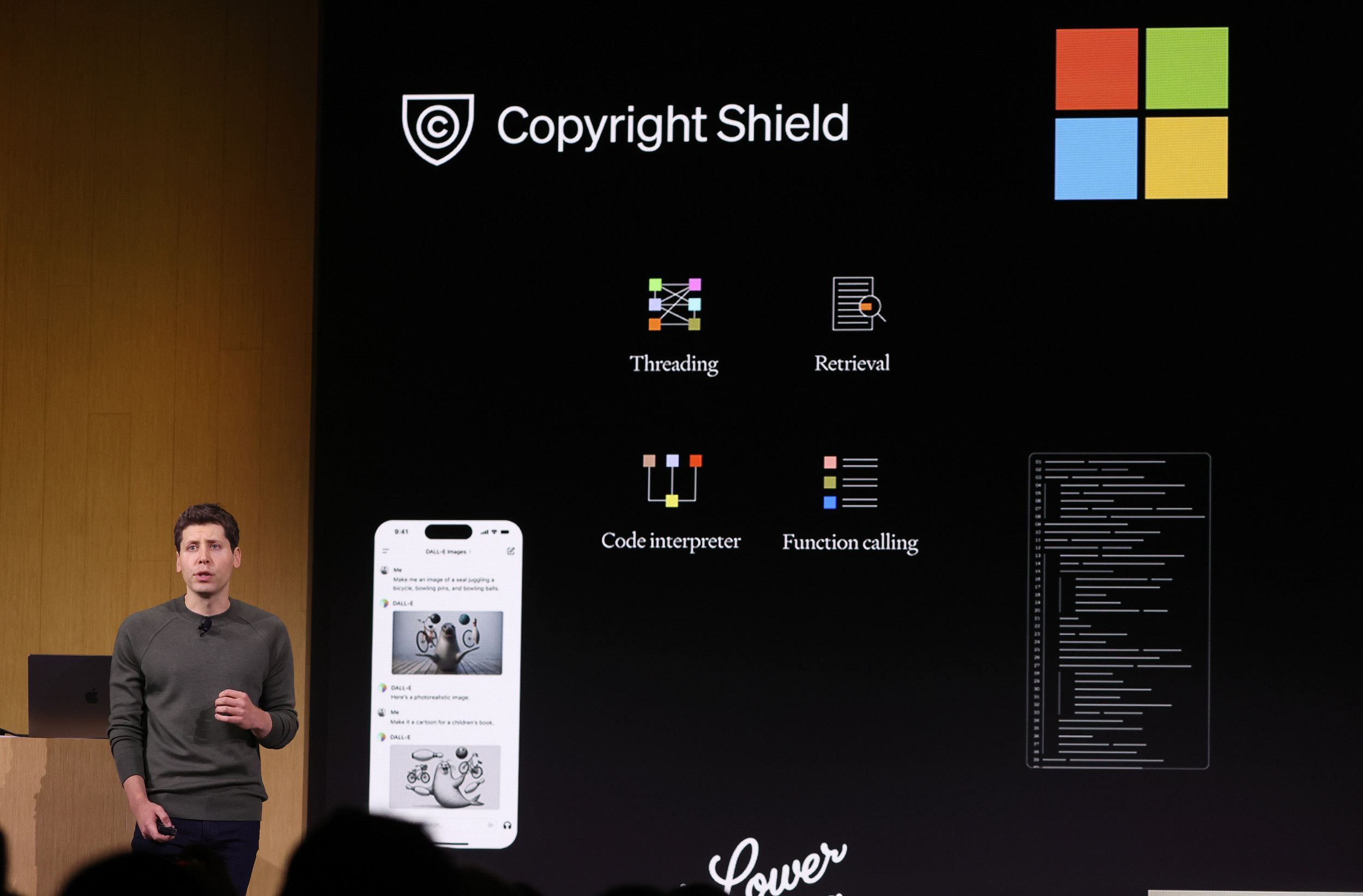
A trend of using ChatGPT to edit your images in the style of Studio Ghibli has swept social media, since the release of OpenAI‘s new image generator. As many social media users jump on the trend, some have raised privacy and safety concerns over sharing your images with ChatGPT.
The Context
Open AI recently launched what it described as its “most advanced image generator yet,” which has been built into GPT-4o.
Justin Sullivan/Getty Images
The model “has surprising visual fluency, capable of generating images that are useful, consistent, and context-aware.” People quickly realized that the image generator is good at replicating the anime style of Studio Ghibli, sparking a trend online.
Studio Ghibli is a beloved Japanese animation studio, known for films like My Neighbor Totoro (1988), Spirited Away (2001) and Howl’s Moving Castle (2004). Running for 40 years, it has a strong and influential presence in the industry.
What To Know
Many social media users have had fun with the trend, and posts of Ghibli style edits have amassed millions of views online. One edit, of a picture of a man, a dog and his wife, has been viewed over 49 million times on X as of reporting, while another post which edited memes into a Ghibli style has also received nearly 50 million views.
But critics have warned they could be unwittingly handing over their data to OpenAI, which has raised privacy concerns.
It’s been 24 hours since OpenAI unexpectedly shook the AI image world with 4o image generation.
Here are the 14 most mindblowing examples so far (100% AI-generated):
1. Studio ghibli style memespic.twitter.com/E38mBnPnQh
— Barsee 🐶 (@heyBarsee) March 26, 2025
In a post on X, formerly Twitter which has been viewed over 200,000 times as of reporting, Luiza Jarovsky, co-founder of aitechprivacy.com, highlighted privacy concerns about the new feature.
The post read, in part, “Thousands of people are now voluntarily uploading their faces and personal photos to ChatGPT. As a result, OpenAI is gaining free and easy access to many thousands of new faces to train its AI models.”
It continued, “When people voluntarily upload these images, they give their consent to OpenAI to process them (Article 6.1.a of the GDPR). This is a different legal ground that gives more freedom to OpenAI.”
“OpenAI is gaining free and easy access to these images, and only they will have originals,” Jarovsky wrote in a post.
A spokesperson for OpenAI highlighted that privacy and security is a priority for the company in an email shared with Newsweek.
An OpenAI spokesperson also told Newsweek that they minimize personal information collection and that their intention is for AI models to gain knowledge about the world rather than individuals in a private capacity and said that they do not seek personal information to train their models.
In addition, the spokesperson also said that how data is used can be controlled by users, as they possess self-service tools to delete personal information or opt out of having their content used in order to improve models.
What People Are Saying
Sam Altman, CEO of OpenAI, on X: “We are launching a new thing today—images in chatgpt! … it’s an incredible technology/product. i remember seeing some of the first images come out of this model and having a hard time they were really made by AI. we think people will love it, and we are excited to see the resulting creativity.”
Luiza Jarovsky, co-founder of aitechprivacy.com, on X: “Most people haven’t realized that the Ghibli Effect is not only an AI copyright controversy but also OpenAI’s PR trick to get access to thousands of new personal images.”
Hayo Mizayaki, the co-founder of Studio Ghibli in a 2016 meeting where he was shown AI animation: “Whoever creates this stuff has no idea what pain is or whatsoever. I am utterly disgusted. If you really want to make creepy stuff you can go ahead and do it. I would never wish to incorporate this technology into my work at all. I strongly feel that this is an insult to life itself.”
What Happens Next
As AI continues to develop and become more sophisticated, it will likely change and impact everyday life.
Do you have a story Newsweek should be covering? Do you have any questions about this story? ContactLiveNews@newsweek.com.
